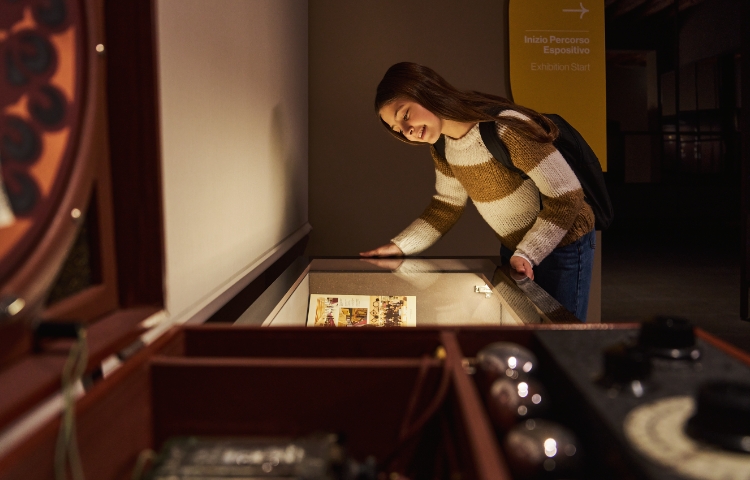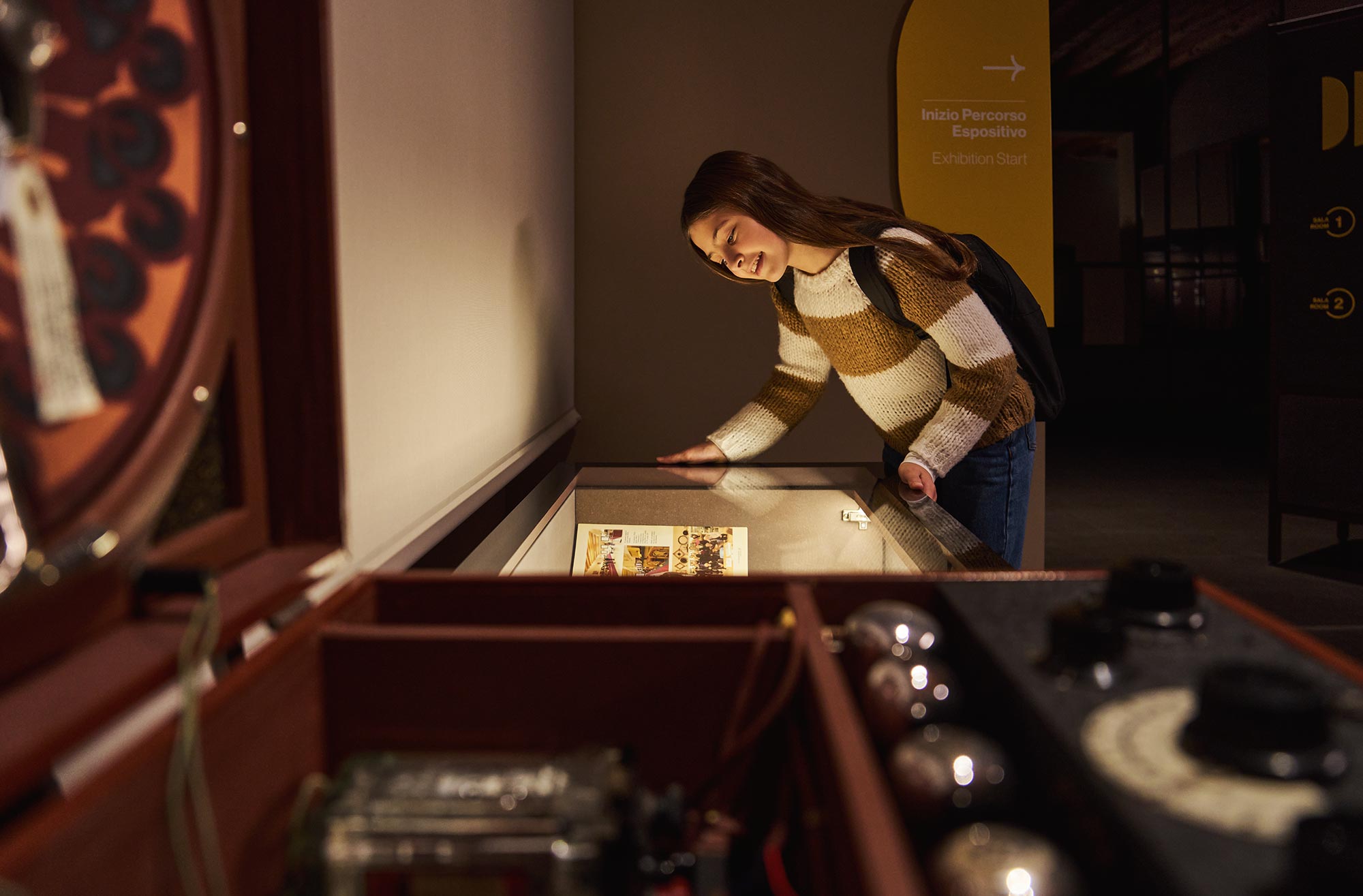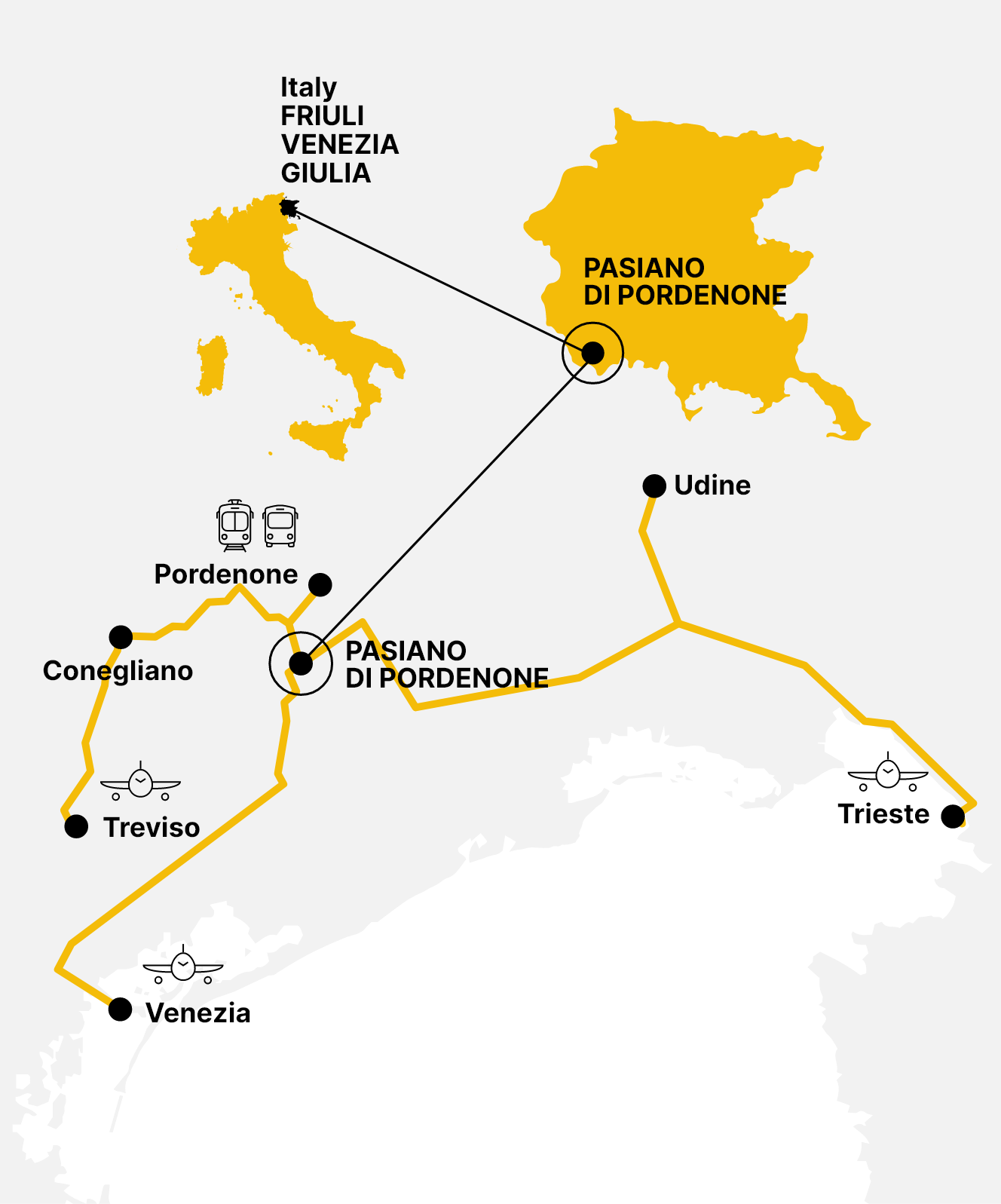

Educational Workshop Activities: RadioExperience and ArcheoExperience
Organized by Eupolis Studio Associato.
PRICES AND INFORMATION
- Comprehensive Institute of Pasiano di Pordenone
Activities are free of charge - Other Institutes and Schools
1 hour: €20
2 hours: €40
3 hours: €60
Educational Office
+39 375 828 4685 (Info line and WhatsApp available daily from 2:00 PM to 5:00 PM)
RadioExperience
RADIO AND CIRCUITS
- Electrical circuits
- Conductors and insulators
- Electromagnetic induction
- Function of basic electronic components
Workshop
The inside of vintage radios offers an effective way to understand fundamental concepts in electronics-concepts that often appear sterile in diagrams and unintelligible in modern circuits. Let’s explore them through a hands-on activity.
Target audience
Primary school (grade 5) and lower and upper secondary school students.
Duration
2 hours
SOUND AND MUSIC
Sound production
Sound propagation through different materials
Elements of sound perception
Musical instruments – loudspeakers – microphones
Workshop
We listen to most music (and more) through loudspeakers: let’s discover how they work by building them and experimenting with how their shape and materials affect their function.
Target audience
Primary school (from grade 3) and lower secondary school students.
Duration
2 hours
— ·· ·-· ···
- Codes and ciphers
- Morse and Braille encoding
- Encryption systems
- Modulation and demodulation
Workshop
Throughout history, those needing to communicate have faced the challenge of encryption to safeguard the confidentiality of information. In this workshop, we explore both ancient and modern cryptographic techniques and their use in radiotelegraphy.
Target audience
Primary school (from grade 3) and lower and upper secondary school students.
Duration
2 to 3 hours
CELL PHONES: THEN AND NOW
- Electromagnetic waves and the radiation spectrum
- Evolution of cell phones
- Antenna surveys and measurements
- 3G -> 4G -> 5G
- Wi-Fi
- Biological effects of radiation
Workshop
Modern mobile communication technology is the evolution of the wireless telegraph concept, with early cell phones using frequencies similar to those of radios.
Target audience
Lower and upper secondary school students.
Duration
3 hours
FORMS IN COMPARISON
- Internal and external components
- Materials
- Aesthetics
- The “speaking” parts
Workshop
How has technological evolution influenced taste? How have practical needs shaped stylistic choices? Radios can help us explore these questions.
Target audience
Primary school (from grade 3) and lower and upper secondary school students.
Duration
2 hours
RADIO AND DESIGN
- Evolution of style and taste
- Shapes and colors
- Design process
- Famous designers
Educational Pathway
Through the displayed radios, we can explore the history of taste and design by studying and comparing models and materials, then designing your own radio.
Target audience
Primary school (from grade 3) and lower and upper secondary school students.
Duration
2 to 3 hours
THE HISTORY OF RADIO, THE HISTORY OF SOCIETY
- How radio listening has evolved
- Society: local and national perspectives
- World history
- Documents that tell the story
Educational Pathway
The displayed documents, together with radios, can narrate national and international history. An immersive journey full of insights and themes.
Target audience
Primary school (grades 4 and 5), lower and upper secondary school students.
Duration
2 hours
MIRS ON AIR
Workshop
An interdisciplinary group activity conducted over two sessions with the goal of producing an episode of a podcast or radio program. Students choose a theme to work on, assign roles (e.g., directing, scriptwriting, music, voice, post-production), and collaborate.
Target audience
Lower and upper secondary school students.
Duration
2 + 2 hours
CARTOGRAPHY, HISTORICAL IMAGES, AND ARCHIVAL PHOTOGRAPHS
- Cartography
- Geography
- Historical photography
- Use of sources
- Contemporary relevance
Workshop
Collections of historical maps and documents—many of which are linked to the local area—together with a rich archive of vintage photographs related to Pasiano and its districts, are essential resources for reconstructing the recent past.
Target audience
Primary school and lower and upper secondary school students.
Duration
2 to 3 hours
ArcheoExperience
SIMULATED EXCAVATION
- Excavation procedures and techniques
- Use of original tools
- Accurate replicas of archaeological finds
- Local historical context
Workshop
The Archeopoint houses and displays important artifacts discovered through stratigraphic excavations, providing the foundation for this educational simulation.
Target audience
Primary school (from grade 3) and lower secondary school students.
Duration
2 to 3 hours
SURFACE SURVEY
- Survey procedures and topographic techniques
- Use of original instruments
- Cataloguing methods
- Accurate replicas and original artifacts
Workshop
A simulated surface survey activity applying all the techniques required for accurate field documentation.
Target audience
Primary school (from grade 3) and lower secondary school students.
Duration
2 hours
ARCHAEOLOGICAL MAPS
- Cartography
- Geography
- Use of historical sources
- Research and identification of local sites
- Interpretation of settlement dynamics
Workshop
The Pasiano area is an excellent example of how ancient communities settled and made use of the environment. By creating an actual archaeological map, students can explore and verify these patterns firsthand.
Target audience
Primary school (from grade 3) and lower and upper secondary school students.
Duration
2 hours
OIL LAMPS AND BRICKS
- Production techniques
- Activity and location of ancient kilns
- Clay handling and processing
Workshop
The Archeopoint preserves numerous archaeological materials linked to the presence of Roman kilns. Let’s discover how they were built and how their products were made.
Target audience
Primary school students.
Duration
2 to 3 hours
CENTURIATION AND COMMUNICATION ROUTES
- Cartography
- Geography
- Roman centuriation
- Roads and bridges
- Coding
Workshop
In Roman times, major roads passed through the Pasiano area, at least one bridge existed, and the land was divided for agricultural and productive purposes. We will reconstruct a model of this historical landscape.
Target audience
Primary school (grade 5) and lower secondary school students.
Duration
3 hours
SATURDAY
October to April
2.00 p.m. – 6.00 p.m.
May to September
3.00 p.m. – 7.00 p.m.
SUNDAY
Morning opening all year round
10.30 a.m. – 1.00 p.m.
Afternoon
October to April
2.00 p.m. – 6.00 p.m.
May to September
3.00 p.m. – 7.00 p.m.
AVAILABLE DAILY BY RESERVATION
FOR SCHOOLS AND GROUPS
Educational Tours / Workshops / Hands-On Activities
Write to us
- Venice airport
- Treviso airport
- Trieste airport
Destination – Pordenone station
- From Venice towards Udine
- From Treviso towards Udine
- From Udine towards Venice
- From Trieste towards Portogruaro, Venice
When you arrive at Pordenone station, you can take the bus to Pasiano di Pordenone.
Motorway
- From Venice: Tangenziale di Mestre/A57, Autostrada E70 in the direction of Via Dante/SP54 to Calstorta, exiting at Cessalto.
- From Treviso: A28 Portogruaro, exiting at Sacile Est.
- From Conegliano: A28 Portogruaro, exiting at Sacile Est.
- From Udine: SR56 to Pozzuolo del Friuli, Autostrada E70 towards A28 Portogruaro, exiting at Azzano Decimo.
- From Trieste: Autostrada E70 towards A28 Portogruaro, exiting at Azzano Decimo.
